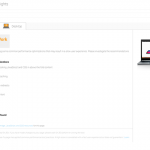Five Ways Older Workers Can Combat Age Discrimination
“I turned 50 and seemed to have been thrown out of the public relations profession, my industry of 20 years,” says Lisa Wells, who recalls having traveled repeatedly from New York to Philadelphia and Boston for job interviews—all without having any luck. Desperate, Wells sought some professional help. But “after going to a head hunter’s office in Midtown to meet a young woman who seemed to be in her pajamas,” she recalls, “I went home and decided to open my own consulting business.”
Her experience isn’t unique. An AARP Public Policy Institute analysis of Bureau of Labor Statistics data found that the average duration of unemployment for job seekers ages 55 and older was 54.3 weeks in December 2014—more than five months longer than the 28.2 weeks younger workers typically remain unemployed.
Tom Smith, a 58-year-old marketing executive, says he’s applied to over 2,000 jobs since turning 50. After a grueling 27-month job search, Smith finally accepted an offer for 64% of his previous salary, just in order to secure a job with benefits. Soon afterward, his role was redefined and his salary cut 43%.
Obstacles Large, Small, And Invisible
According to AARP research, 64% of workers report experiencing age discrimination, which can take many forms—ranging from the overt and individual to the implicit and institutional. (In the tech industry, just to take one example, self-advertised “young, nimble startups” all but tell older candidates to look elsewhere right in their job postings.)
All these forms of age discrimination persist thanks to few core assumptions about older workers in a modern, ever-changing job force. They include:
- Young people invest more in developing new skills.
- Young people feel more excited by their jobs.
- Older people neglect their health.
- Older people get exhausted by their work.
- Older workers are looking to slow down and coast toward retirement.
- Older workers have less interest in exploring new ideas and opportunities.
Yet each of these assumptions—about younger and older workers alike—were shown to be statistically untrue in a study by London Business School researchers Lynda Gratton and Andrew Scott.
Groundless biases aside, many organizations may simply not to want invest in people they believe to be close to retirement, preferring someone with more “growth potential.” This is often a fallacy, too. By one measure, some 58% of millennials expect to leave their jobs in three years or less. That figure is high, but it isn’t especially remarkable. For context, a separate study estimated that nearly half of workers worldwide expect to leave their jobs just within the next year. The retention problem is so acute that companies are constantly dreaming up new ways to keep their best and brightest around for longer.
At all events, there’s really no evidence that investing in a younger worker is a “safer” bet or offers a higher ROI potential than investing in an older one. As AARP’s CEO Jo Ann Jenkins puts it, “Ultimately, I don’t think employers need to see older employees as being much different than younger ones.” If anything, she says, “older employees often tend to be especially loyal, focused, and bring unique experience that others simply don’t have.”
So how can older workers improve their chances of landing rewarding, fairly compensated work in an environment like this? There are a few practical steps to take.
1. Work Your Network
Todd Williams was a business owner before adopting his two young granddaughters. But “the demands of starting a family over are not necessarily consistent with running a business,” he’s found. “Family time is critical,” and being an entrepreneur cuts into it too much. So Williams, 59, has started looking for W2-based work. “I am looking for a good salary, life and health insurance, vacation, 50% or less travel,” he says.
The first place he’s begun to look for those opportunities is inside the network he’s built up as a business owner. In fact, Williams says networking “has landed more contracts that meet my needs. It also has me in the running for two W2 jobs that have not been posted—and may never be posted—as they are creating positions for me.”
He points out that older people may actually have an advantage here; their networks are likely much bigger than those of younger professionals. Rebecca Janzon, 54, agrees. Savvy networking, she’s found, can help you get past the front-line HR reps and recruiters. “Most companies still think that hiring young, inexperienced people at low pay is the answer . . . Their HR teams look for that,” Janzon believes.” Getting a referral, though, can help your resume (and its hints about your age) leapfrog over a company’s initial screening process.
2. Offer Your Services And Share Your Ideas
Williams also points out that one way to get in the door of an organization you’re interested in is by offering services like consulting, mentoring, or coaching on a project basis first. This can let you show in real time what an asset you could be to the organization.
Professional organizations can be useful as well, says Williams, especially if you can land a speaking gig (here are a few ways to use LinkedIn to do that). Presenting to an industry group allows you to show the value of your experience to a room full of people in your field. There’s just one caveat, Williams jokes: Only do this “if you have a huge amount of energy to overcome the old-fart appearance.”
3. Maintain A Polished Image
Older workers are acutely aware of the need to stay current, keep their skills up to date, and constantly push themselves to learn new things. But—like it or not—your outward personal brand needs to match your expertise. That means making sure the image you present to the professional world is as polished as it can be.
Some of the older professionals I spoke with even mentioned wardrobe considerations. Some recommended finding a younger friend you can trust to be honest and offer pointers to update your look, if needed. Others suggested hiring a photographer to get an updated LinkedIn photo. This can be frustrating advice to hear, particularly for women—who already confront a complex of gender-based biases, including about their appearances. But the key is simply to project the same level of polish as your younger competitors in the job market, while staying authentic to you.
4. Use The “9999” Strategy
Technology has changed the recruiting process immeasurably in recent years. Sue DiMartino, executive administrative professional in her fifties, whose position with a large corporation was eliminated due to restructuring, turned to a transition company when she reentered the job market. There she learned how to tailor her resume so it can get past digital scanners designed to weed out resumes without enough keywords.
DiMartino also offers a technology trick to hold in your back pocket. In some situations, she points out, it may be illegal for companies to require candidates list the dates they earned degrees; others may simply avoid it for fear of falling afoul of state and federal anti-discrimination laws. But many employers aren’t so prudent. “If a company hasn’t updated its computerized forms,” DiMartino suggests, “answer with ‘9999,’ which populates the field and allows you to submit the application.”
5. Stop Looking For A Job And Create Your Own
Depending on their skill sets, income needs, and lifestyles, some older workers can benefit from moving in the opposite direction of people like Williams—by starting their own businesses, consulting, or picking up freelance work.
“I retired from a very lucrative career because my age was holding me back from finding a new job,” says first-time entrepreneur Dick Kuiper. “I tried unsuccessfully to find a new position that would pay me a living wage in a traditional job in that career field. Then I thought, ‘Why not create my own job?’ I did. It worked and I’m off and running with a successful business of my own that’s partially linked to my previous career.”
Just because you’re an older worker doesn’t guarantee that you’ll experience age discrimination, of course. But that likelihood may rise when you find yourself searching for a new job later in your career. If that happens, just remember that you aren’t doomed simply to suffer the consequences. You may have more resources at your disposal than many younger workers—and you yourself—even suspect. You just need to know how to tap them.
Anne Loehr is a speaker, writer, consultant, and trainer. She helps leaders in large organizations connect their everyday decisions today to the workplace of tomorrow. Follow Anne on Twitter at @anneloehr.
Related Video: Pfizer’s Senior Intern Program Is Retiring Office Age Bias
Fast Company , Read Full Story
(49)














